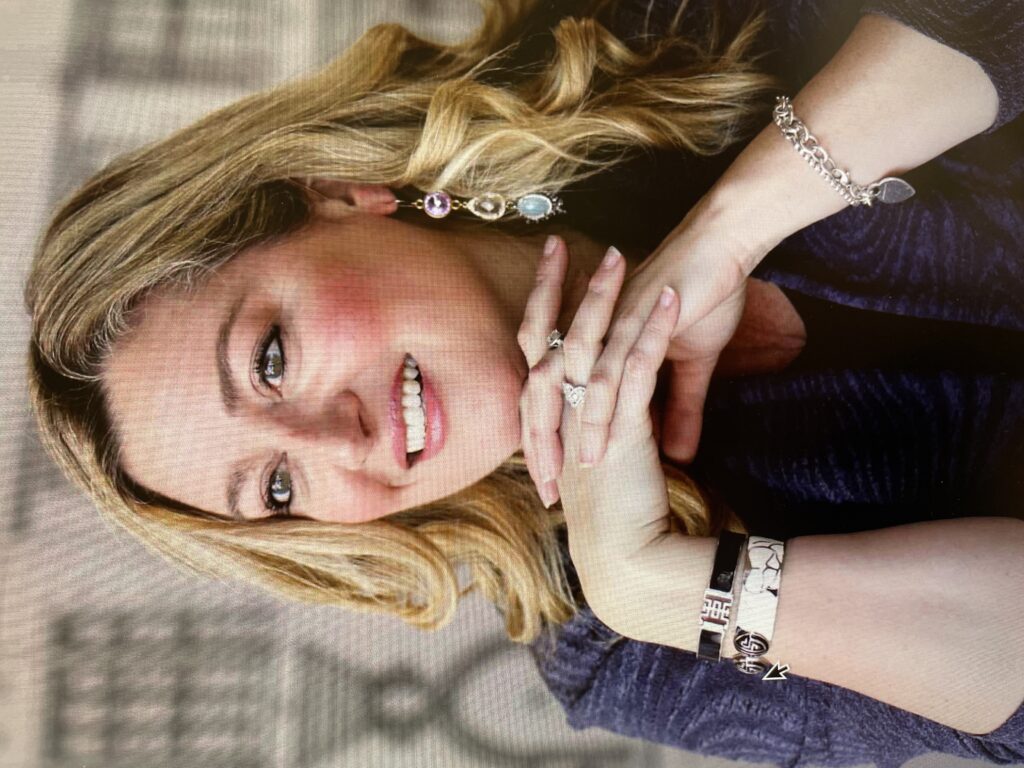Sarah Robertson, Executive Director, Advancement, The Bishop Strachan School

Sarah and I began collaborating when she was Associate Vice-Principal at Upper Canada College (UCC). It was an enormous pleasure to work with her. And not just because she is kind, smart, and an outstanding relationship manager who builds lasting connections. Sarah is also a respectful partner who knows how to listen and who added value to every step of the executive search process. Together we hired some very talented people for the school’s major gift, operations, and alumni and community giving teams. All those individuals are still in their roles at UCC. That’s a proud achievement in an industry that sees a high degree of turnover.
BIGGEST LEARNINGS
What’s one thing you wish someone had told your younger self?
- To take more risks. To be less nervous about making a mistake. To learn more by stepping outside my comfort zone.
- To explore contract work. It’s a great way to get a range of job experience, to build a network, and to understand how various organizations operate. In this fast-paced world, a full-time job is no longer a safe haven, and contract experience allows you to explore an industry and a company before you make a commitment, to be sure it’s right for you.
What has been your biggest mistake or misstep and how did you fix it?
Staying too long in organizations whose culture or leadership was not aligned with my values. This has occurred more than once over the course my career. It’s very difficult to thrive in an organization if what you bring to the table isn’t valued. No amount of hard work or success in your performance will change that, which is a difficult realization. I know that I work best in an environment of trust, where I can encourage my team to feel safe taking calculated risks to improve their performance. And I need to be able to use my voice and be heard where I have experience and strong skills.
What is the toughest experience you have had to date and what have you learned?
- There are times I applied for jobs and didn’t get them or saw someone less qualified hired instead. That is a big hit to the ego. Now I realize that there are some jobs you’re not right for, some jobs you’re simply never going to get. It takes a lot of self-awareness, and it isn’t always rational. So, I learned to be realistic and smart as well as tenacious. Keep searching until you find the place that supports and values you, where you can make your best contribution.
- Money is important, but it can be a trap; it’s very hard to leave a job with a big paycheque. I have learned that a big salary cannot transform the wrong job into the right job for me.
- Our feelings of self-worth are heavily influenced by our career success—there’s an emotional connection. But that connection can be a detriment if it keeps us stuck or in the wrong place for too long. If you aren’t thriving, it’s important to figure out why and not be afraid to act.
LEADERSHIP
What are the characteristics of the best boss you have ever had?
My best bosses have been people who are:
- Always striving for excellence, who create an atmosphere that values continuous improvement.
- Humble—willing to collaborate, eager to learn, know when to ask for and accept help.
- Authentic and honest, building sincere connections that develop trust on both sides.
- Not threatened by the abilities of the people around them and willing to give credit to others.
- Motivated by the success of the whole team.
What are the essential qualities of a major-gift fundraiser?
- Someone who develops relationships, who listens to donors and understands what motivates them.
- Individuals who manage large call volumes and move quickly and efficiently when working a donor pipeline.
What do you want to share with others to support their careers in this sector?
Asking for money is not as hard as some outsiders might think, because the reality is that 99% of your job is building relationships and engaging people with your organization’s mission. The asking is just a tiny part of the whole. People need to know that as fundraisers we offer donors something important: the chance to make a difference, to invest in something that is meaningful to them. Fundraising has a significant positive impact on donors, as well as on recipients.
